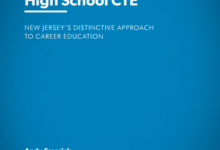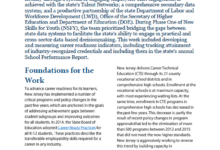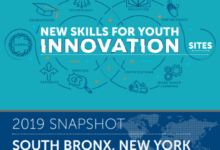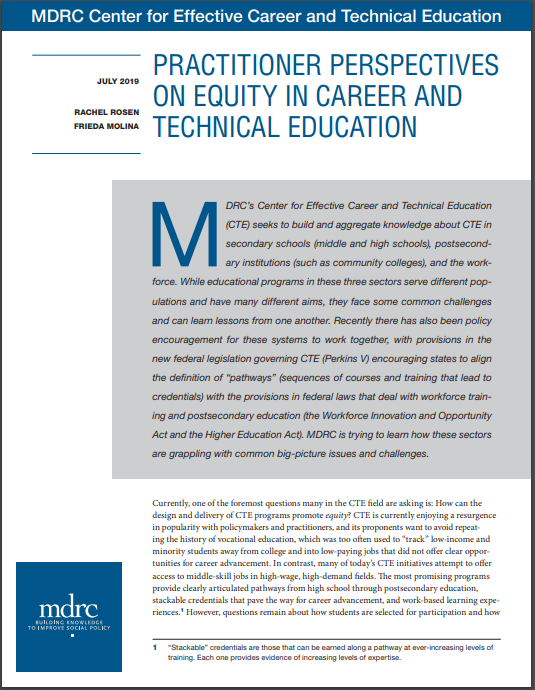In the past, vocational education was often used to “track” low-income and minority learners away from college and into low-paying jobs that did not offer clear opportunities for career advancement. Today, Career Technical Education (CTE) programs offer access to middle- and high-skill jobs in high-wage, in-demand fields. However, questions still remain about how learners are selected for participation and how they are supported to achieve desired outcomes. To address these questions, MRDC invited practitioners from innovative CTE programs to participate in a focus group on the subject of equitable access to high-quality CTE programs. The most common challenges to equity that were identified are access to advisors or counselors, lack of information, overcoming stigmas around technical education programs, enrollment criteria, lack of training or knowledge in “soft skills,” access to well-developed professional networks, and employer preparedness for working with learners. The brief also includes solutions for addressing these challenges and examples from around the country of how CTE practitioners can solve the challenges of equity and access.
Credentials and Assessments
This report from JFF with a select group of community college practitioners, makes the case for policymakers, employers and practitioners…






